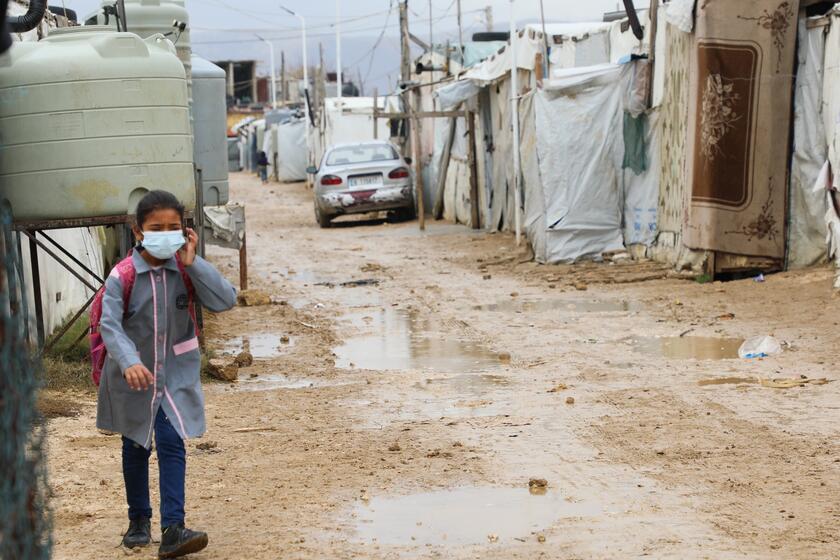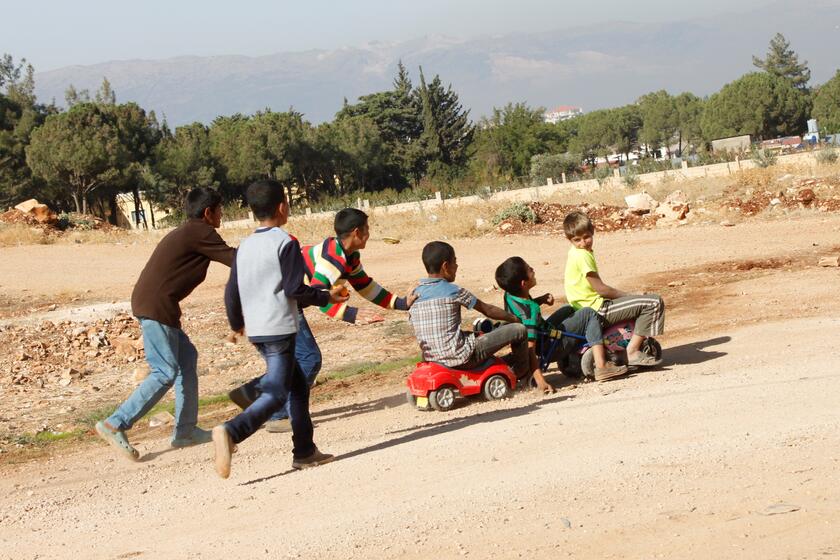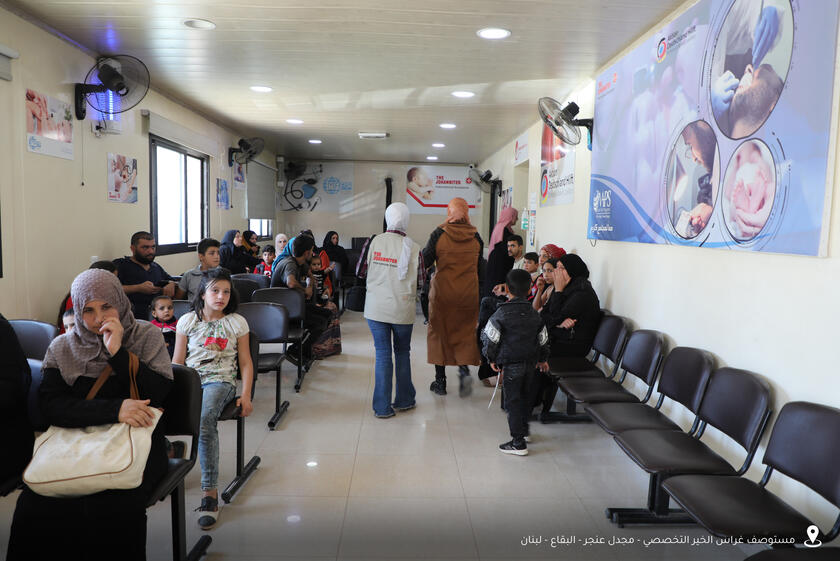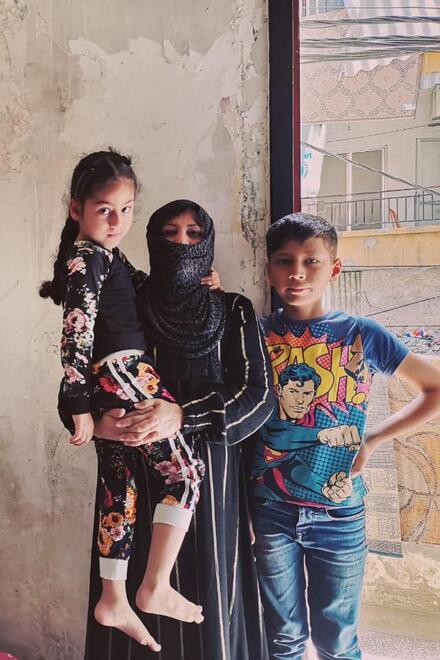Lebanon: Medical care for Syrian refugees

The difficult economic situation in Lebanon also leads to a deterioration in health care. Johanniter therefore continues to provide medical care for 30,000 Syrian refugees and vulnerable Lebanese in the Bekaa Valley.
Lebanon was once a leader in medical treatment and care in the region. But for some years now, the health sector itself has become a patient. The economic collapse and inflation are endangering basic medical care. More than 2500 doctors and nurses are said to have left the country because working conditions have become untenable.
"Today, there is a lack of electricity to run the hospitals, fuel for transport, money for salaries," explains Roy Joude, Johanniter programme manager for Lebanon. Refugees from Syria who are seeking protection in Lebanon are particularly hard hit. In the Bekaa Valley near the Syrian border, Johanniter and its partner Multi Aid Programs (MAPS) are helping to provide medical care for the 30,000 Syrian refugees living there.
11 years of war - 11 years of living under plastic sheets

Syrian refugees are among the most marginalized populations in the world. Even after finding shelter in host countries like Lebanon, Syrian refugees in the camps struggle day in and day out to feed themselves and their children and to stay healthy.
"Clean water, sanitation and enough food do not exist in the camps in the Bekaa Valley. Therefore, the number of diseases such as diabetes, respiratory infections and diarrheal diseases continues to increase," reports Johanniter Middle East programme support officer Hala Barbarawi, after her return from the Bekaa Valley. "Especially children suffer from the difficult conditions. Among others, diseases such as deafness, blindness, immobility, rheumatism, autism and heart defects are also on the rise." Furthermore, many children do not have normal access to educational programmes due to their poor health.
Comprehensive medical aid

For years, Johanniter and MAPs have been supporting the rehabilitation and operation of a health centre in the Bekaa Valley serving mostly refugees, but also - and increasingly - vulnerable Lebanese. In the past, for example, a mother-child centre has been set up and equipped, laboratories have been stocked with medical equipment, X-ray machines, ultrasound probes, and medical and dental supplies have been procured.
"The enormous need in Lebanon due to the difficult economic situation makes our help further indispensable," says Hala. Therefore, Johanniter has extended its activities at the Ghiras Al-Khair health centre. This way, medical care can continue to be provided for the approximately 30,000 Syrian refugees and the Lebanese population in the region.
